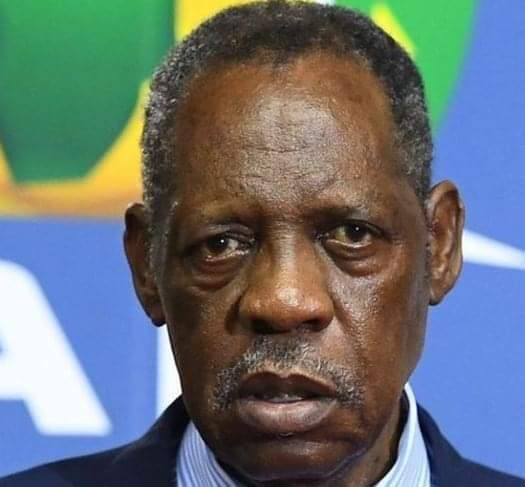The world of African football is mourning following the loss of Issa Hayatou, a towering figure in sports administration, who passed away on Thursday, just hours shy of his 78th birthday. The former President of the Confederation of African Football (CAF) died after a prolonged illness, a loss that reverberated across the continent and beyond.
The news of Hayatou’s death was confirmed by FIFA President Gianni Infantino, who paid tribute to the Cameroonian sports icon in a heartfelt post on Instagram. “Saddened to hear of the passing of former CAF President, former FIFA President and interim, FIFA Vice President and FIFA Council member, Issa Hayatou.
As a passionate sports fan and IOC member, he dedicated his life to sports administration. On behalf of FIFA, condolences go to his family, friends, former colleagues, and all who knew him. Rest in peace,” Infantino wrote.
Hayatou’s storied career in sports administration spanned over four decades, with 29 years spent at the helm of CAF. Under his leadership, the organization grew in stature, expanding African football’s influence on the global stage. His tenure, however, was not without controversy.
In 2016, FIFA imposed a one-year ban on him for ethics violations related to CAF’s broadcasting deal with the French media company Lagardère. The Court of Arbitration for Sport later overturned the sanction in 2017, allowing Hayatou to retire with his reputation largely intact.
Born in Garoua, Cameroon, in 1946, Issa Hayatou was not just a leader but a former athlete himself. Before transitioning into administration, he was a successful track and field athlete and a basketball player, representing Cameroon in both sports. His transition into football administration began in the 1980s, where he quickly rose through the ranks due to his sharp strategic mind and deep understanding of African sports.
Hayatou’s reign at CAF began in 1988, a period during which African football faced significant challenges, including limited funding and infrastructure. He was instrumental in increasing the number of African teams in the FIFA World Cup, advocating tirelessly for the continent’s representation on the global stage. His efforts bore fruit, with Africa securing five slots in the World Cup by the end of his tenure.
In 2015, Hayatou stepped in as acting FIFA President following Sepp Blatter’s suspension amid corruption allegations. His short stint at FIFA’s helm was marked by stability and a focus on maintaining the organization’s credibility during a turbulent period.
As news of his death spreads, tributes are pouring in from across the globe. In Cameroon, the government declared a period of national mourning, with flags flying at half-mast in honor of their beloved son. African footballers, coaches, and officials have also expressed their sorrow, recalling Hayatou’s contributions to the sport and his deep commitment to the African continent.
Hayatou leaves behind a complex legacy—a man who navigated the often murky waters of sports politics with determination and a vision for African football that will be felt for generations to come. His passing marks the end of an era for African sports, but his influence will undoubtedly continue to shape the future of football in Africa.




